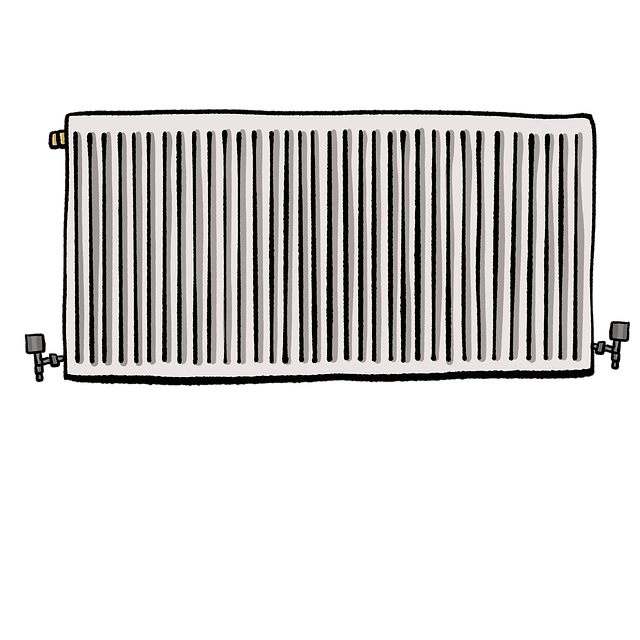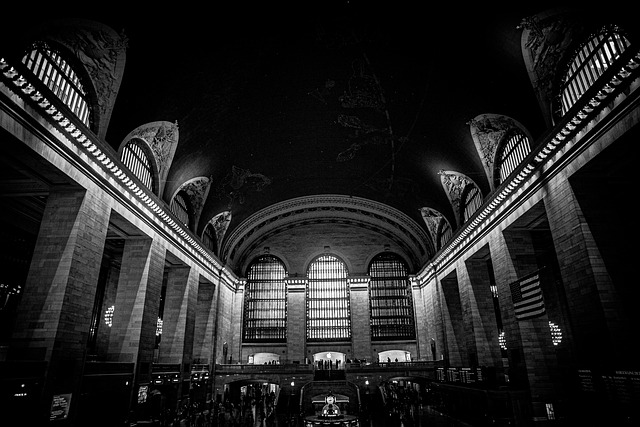Upgrading to smart central heating involves considering initial costs (£1500-£3000+), installation, and maintenance. Integrating eco-friendly practices like solar panels or heat pumps reduces operational expenses and environmental impact. Government grants support this transition. Homeowners should balance upfront expenses against future savings and a greener lifestyle when installing central heating, exploring alternatives for cost savings, and taking advantage of financing options.
Considering an upgrade to smart central heating? This comprehensive guide breaks down the costs, from understanding the technology to exploring financing options. We analyze factors influencing installation expenses, providing insights on average prices for various system upgrades. Learn how long-term savings and ROI can offset initial investment. Discover grants and funding opportunities to make your smart central heating installation more affordable.
- Understanding Smart Central Heating Costs
- Factors Affecting Installation Expenses
- Average Prices for Upgrading Systems
- Long-Term Savings and ROI Analysis
- Exploring Financing Options and Grants
Understanding Smart Central Heating Costs

Understanding Smart Central Heating Costs
When considering an upgrade to smart central heating, it’s crucial to grasp that the overall cost isn’t just about the technology itself, but also installation, maintenance, and potential energy savings. The initial investment for a smart central heating system can vary significantly depending on your property size, existing infrastructure, and chosen technology. For instance, replacing a traditional boiler with a modern, smart model could range from £1500 to £3000 or more. However, this upgrade offers the potential for long-term savings through efficient energy use and reduced heating bills.
An eco-friendly approach, smart central heating integrates seamlessly with sustainable energy practices, such as solar panels or heat pumps, further lowering operational costs and environmental impact. Moreover, government grants and incentives often support the transition to these more advanced, energy-efficient systems, making them a viable long-term investment. By understanding the multifaceted nature of smart central heating costs, homeowners can make informed decisions that balance upfront expenses with future savings and a greener lifestyle.
Factors Affecting Installation Expenses

The expense of upgrading to smart central heating can vary greatly based on several factors. One key consideration is the size and complexity of your home’s heating system; larger properties or those with older, more intricate layouts may require a more substantial investment for installation. The type and brand of the new system also play a significant role in cost. High-end smart boilers and control systems tend to be pricier than standard models, but they often come with advanced features and better energy efficiency.
Another factor influencing central heating installation expenses is whether you need to replace existing components or if the work involves extensive re-wiring and renovation. If your current boiler is in good condition but requires upgrading to a smart model, the costs will differ from a complete system replacement. Additionally, location can have an impact due to regional labor rates and availability of specific products. Prioritizing a smooth transition to a smart heating system means considering these variables for a more accurate estimate on how much does a new system cost to replace your current setup.
Average Prices for Upgrading Systems

The cost of upgrading to smart central heating can vary greatly depending on several factors, including the age and size of your current system, the complexity of the installation process, and the specific technology chosen. On average, a complete replacement and upgrade can range from £2,500 to £6,000 for a typical home. This investment includes not only the cost of advanced thermostat controllers but also any necessary new pipes, valves, and other components to integrate these smart devices seamlessly with your existing or new central heating boiler.
When considering the transition to smarter heating systems, exploring alternatives like trees (for natural insulation), central heating co-ops, or community system designs can offer both cost savings and environmental benefits. A plumber in Bromsgrove or elsewhere can provide expert advice tailored to your needs, ensuring that you make an informed decision that suits your budget and contributes to a more sustainable future.
Long-Term Savings and ROI Analysis

Upgrading to a smart central heating system can seem like a significant investment upfront, but it’s crucial to consider the long-term savings and return on investment (ROI) it offers. While the initial cost to replace an old system can vary greatly depending on factors like property size, current setup complexity, and chosen technology, the benefits extend beyond mere financial outlay.
Smart heating systems are designed to optimize energy usage, learning patterns and preferences of tenants, and adjusting accordingly. Over time, this translates into reduced energy bills as the system efficiently manages temperature control. In terms of ROI, a study by Energy.gov suggests that for every dollar invested in energy-efficient home improvements, homeowners can save an average of 10 to 30 dollars over time due to lower utility costs. For tenants, these savings can be even more substantial, as they directly impact monthly living expenses.
Exploring Financing Options and Grants

When considering an upgrade to smart central heating, exploring financing options can make this significant investment more manageable. Many businesses offer tailored payment plans and loans specifically for home improvements, allowing you to spread out the cost over several years. Additionally, grants and incentives are often available from local councils or energy-focused organizations to encourage the adoption of efficient heating systems. These financial aids can significantly reduce the overall expense of a new central heating installation.
Optimizing your current system with features like timers and scheduling zones is an electric way to start saving on energy bills. While drainage issues might occasionally arise, regular maintenance can prevent these problems. By combining these cost-saving strategies, you can make the transition to smart central heating more affordable and efficient, ensuring a comfortable living environment without breaking the bank.
Upgrading to smart central heating systems involves an initial investment, but the long-term savings and energy efficiency make it a worthwhile endeavor. By understanding the various costs, factors, and financing options discussed in this article, homeowners can make informed decisions regarding their central heating installation. While average prices vary, exploring grants and considering the potential for significant ROI makes this upgrade accessible to many. Embracing smart home technology is not just a step towards comfort; it’s an investment in energy conservation and long-term financial savings.
